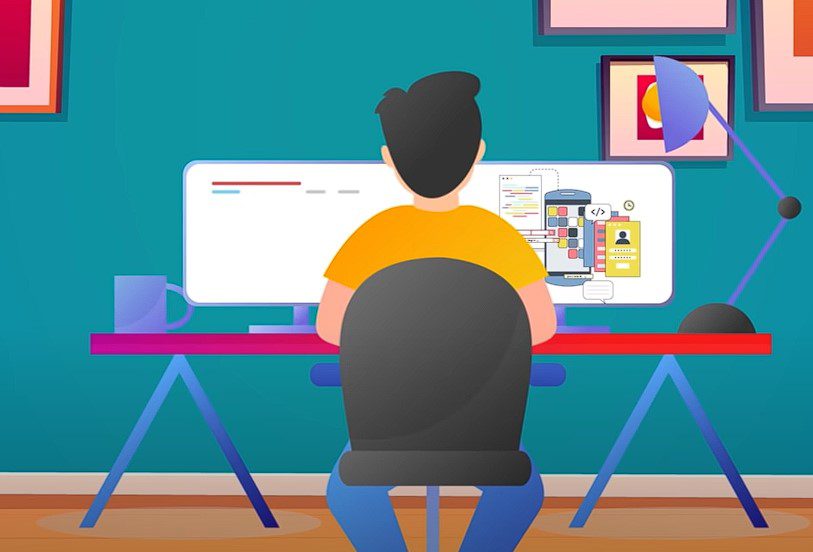Students need to portray active listening skills if they want to succeed in their studies. It is so easy to lose concentration during a class session or lecture. The phone or classmate noise can be a major distractor. However, as a student, it is crucial to know how to avoid getting distracted and listen attentively.
Active listening requires a student to focus fully on the teacher, professor, or facilitator to fully understand their message.
This makes it easier to understand the information and respond as required. This is not similar to passive listening which involves just listening without any form of reaction. However, you may not be paying attention. So, even if a question is asked, you won’t know what to answer.
In this article we will cover the basics of knowing which student demonstrates active listening skills, what is an active listening skill, why is active listening a skill, what is the purpose of active listening, how can I improve my active listening skills, what is active listening and why is it important.

What Is Active Listening Skill?
Active listening skill is a soft skill that all students should have. Not only at school but also people at the workplace need to demonstrate active listing skills. If you don’t have the right active listening skills, most employers won’t even want to risk having you around as you might chase away some investors or clients.
Active listening skills require paying attention to what is being said by someone else, without interrupting at all.
Therefore, while listening, you get to understand what the speaker is trying to say. By actively listening you won’t miss out on important details.
Active listening skills help build trust and rapport with the speaker, demonstrate concern, and boost understanding. Individuals with active listening skills use their body language like eye contact, nodding, or leaning forward to affirm to the speaker that they are listening.
At times brief verbal affirmations can be used to reassure the speaker that they are listening.
Why Is Active Listening A Skill?
Active listening is a skill as it entails how someone takes in some information from a different party. Just like how it is crucial to learn the various maths equations that you can use to tackle questions, it is the same way active listening skill is crucial in our day-to-day life.
Once someone gains active listening skills as a student, they can use them even after, when they are at the workplace, interview, or any other place.
As a skill, you get to absorb the information and reflect on it. It is a valuable skill as it leads to better communication and creates better relationships.
Just like any other skill, you can practice it to perfect it if you are the kind that easily gets distracted. You get to improve your active listening skills with time which makes it easy to have the right concentration level.
Actually in most cases, if you remove some distractors like phones or even sit where there is noise, you are assured of being the perfect active listener. At the end of the day, it is up to you to decide whether you want to listen or not.

What Is The Purpose Of Active Listening
You may still be wondering what is active listening and why is it important. Well, active listening should be embraced by everyone due to its adverse benefits.
- Portrays Respect To Tehspeaker
First and foremost active listening is crucial as it helps portray respect to the speaker. Just imagine if you were facilitating a session, where no one is listening. How would you feel? Well, as a student or individual listening helps provide the right message to the speaker. - Encourage The Speaker To Provide More Information
When a speaker notices that people are listening, they are often motivated to provide more crucial information. However, if everyone in the session seems off, the speaker may feel bad and not be as elaborative as possible. - Active Listening Makes it Easier To Understand The Other’s Point Of View.
Active listening makes it easier to understand what is being said. Therefore, we can have a better understanding of a particular subject which even makes it easier to do our research later on. You may understand something in a specific way however, through active listening you can get a better understanding. - Improve Relationship And Create Rapport
Active listening helps create rapport and improve the relationship between you and the speaker. During the question and answer session, as a listener, you can ask burning questions that the speaker will be more than ready to answer. They will feel great that you listened and strived to even note down some details you didn’t understand. - It reflects patience
Everyone’s concentration span is different. Some people can’t go for ten minutes without getting distracted. However, once you learn active listening skills, it becomes easier to concentrate. Even when you meet new people, you will be able to carry on a conversation. People will want to be friends with you if you listen attentively. Your body language will also help provide the right information. Active listening requires patience as you wait for the speaker to finish what they are saying. - It Boosts The Speaker’s Confidence
When a teacher or professor is talking in a class or lecture room, they are more likely to provide more information if the students seem to be actively listening. Also, it makes it easier to make friends. However, if no one is paying attention, it becomes hard to even proceed. - Encourages Seeing things From Different View Points
Through active listening, it becomes easier to see things from a different viewpoint than what you believe. Therefore, you even get the excitement to research more on the topic. - It Sparks An Interest
Active listening helps to spark an interest in a specific subject. Therefore, you can be able to find more light in a specific subject. Also, you won’t miss out on important points that are being said as compared to when completely distracted by other things. It is also empowering as you get to know things you previously didn’t know.

How Can I Improve My Active Listening Skills
Active listening goes beyond just listening to words. It requires seeking to understand what is being said. Therefore, you will need to be fully present in the scenario and not just present with your body but also your mind.
- Be Present
If you are the kind of person who easily gets distracted, then being present is one of the tactics that you can use to ensure that you actively listen to what is being said. You can try to avoid using other devices such as your phone when you are supposed to be listening. Be mentally prepared to be present. - Maintain Eye Contact
The other mode to improve your active listening skills is by maintaining eye contact with the speaker. When you maintain eye contact it helps you to fully concentrate. You will know that you are supposed to be listening to a specific person and not get easily distracted. Also, remember to sit upright. - Ask Questions Where You Don’t Understand
It isn’t wise to distract a speaker when giving a point. Therefore, you can write down the questions that you don’t understand. Once alright, you can then ask the speaker to clarify various issues. This even encourages the speaker to want to give more details since they note you are listening. - Listen To Understand
At times, we find ourselves listening to respond rather than listening to understand. With active listening, that should never be the case. You need to listen to understand rather than just listen to give a response.
You might disrupt the speaker, yet what you want to respond to is their next point. This can easily make them forget their points. - Be Neutral
Regardless of your beliefs and everything, try and be neutral in your responses. Don’t just say stuff for the sake. Just because the speaker has a different belief from you doesn’t mean that you need to respond to something harshly. You can even discuss and come to a mutual agreement.
How to Determine Which Student Demonstrates Active Listening Skills
Most students strive to pay attention during class sessions. However, distractions can come at any time. Therefore, as a teacher, professor, or facilitator, you can gauge your audience’s active listening skills in various ways:
- Check Whether The Students Are Paying Attention
Active listening requires someone to fully be there without any form of distraction. Therefore, survey the room and see who is offering undivided attention by acknowledging the message you are passing through. Most students who are actively listening will look at the speaker directly without allowing any external factors to affect them. - Check The Student’s Body Language
Another way to determine whether a student is actively listening is by checking their body language. Their body language will also tell you they are listening.
● Are the students sitting upright, slouching on the desk, or just sitting inappropriately?
● Are they focusing on the desk or you or the board?
● Are they talking amongst each other?
● Are they on their phone, writing something or just gazing inappropriately?
● Is their sitting posture welcoming?
● Are they responding positively as you continue with your session?
Once you get to see such, you can determine who is paying attention or not. If you find one who is actively listening then you are sure that the student demonstrates active listening skills. Some students will even offer some verbal comments to assure you to proceed. - Readiness to provide feedback
Active listeners are always attentive and ready to provide any form of feedback based on what they have been taught. Therefore, once you are done with the session, the active listeners will be more than willing to provide feedback or even a summary.
Additionally, active listeners will always be ready to ask questions that they don’t understand or even ask something based on their beliefs. They won’t agree to everything you say and will have some justification for the same.
Sometimes you may even find that their research is deeper than yours; therefore, you can learn a new concept and expound on it for other students to understand. - Check Their Disruption Level.
An active listener would prefer not to disrupt the speaker till they are done with a specific section or the speaker provides a platform for questions.
At times interruption can deter the speaker’s line of thought. In most cases, active listeners will prefer to write down the question and ask it later on for clarification. - Check Their Response To Certain Outdated Information.
A student with active listening skills won’t just attack the speaker on the basis of what they said needs to be corrected. Instead, they will offer their opinion to know what is correct.
The speaker may have some outdated information that the student has got more insights on. They are polite and work towards making things right and not attacking the speaker.
Boost Your Active Listening Skills Today
Your active listening skills can easily be boosted if you are curious. If you want to learn more, it can be so hard to feel distracted.
When it comes to small talk, try and have a conversation about something that both of you are interested in.
In case you see the other party doesn’t seem interested, try and find a way to exit the conversation. Active listening is crucial in relationships, at work, or during social situations. Be attentive from today!
Useful information:
1 – https://www.usip.org/public-education-new/what-active-listening
